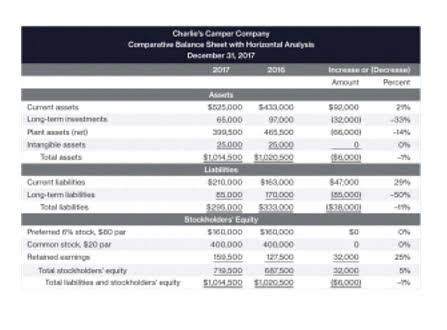FOB Incoterms® meaning Free on Board shipping

As far as FOB accounting for small businesses, the designation matters because it determines when a sale is recorded, and it also dictates shipping terms. So, with an FOB shipping point agreement for $50,000 worth of goods, the seller would put $50,000 in their accounts receivable when the goods were shipped and deduct $50,000 from their inventory. As the goods shipped from the seller, the buyer would have to add $50,000 to their inventory and $50,000 to their accounts payable. So, the inventory would be an asset in their books even though the goods hadn’t arrived yet. The buyer has to pay for the goods to be transported from the shipping point.

CIF vs. FOB: What’s the Difference?
Under FOB destination, freight collect and allowed terms, the buyer pays for the freight costs, but deducts the cost from the supplier’s invoice. Under FOB destination, freight prepaid and added terms, the seller pays the freight charges but bills them to the customer. Although the accounting treatment mentioned above aligns with this, it’s worth mentioning that FOB shipping points and destinations transfer ownership at different times. In a FOB shipping point agreement, ownership transfers from the seller to the buyer once the goods are delivered to the point of origin.
Use a freight forwarder
They can expedite this process and maintain a professional look with Skynova’s invoice template. The template allows for easy customization, including adding a logo, adding a point of origin or a specific address for the seller’s warehouse, and the address for the receiving dock. FOB shipping point terms and FOB destination terms are two of several international commercial terms (“Incoterms”) published by the International Chamber of Commerce (ICC). FOB shipping usually refers to goods shipped by waterways, although uses of the term can vary from country to country. Buyers generally consider FOB agreements to be cheaper and more cost-effective. That’s because they have more control over choosing shippers and insurance limits.

Starting a Business in Germany as a Foreigner US Guide
Under FOB, the risk is officially transferred when the cargo is loaded onboard the vessel. However, it is common practice for the shipper to hand over the cargo to the carrier at the terminal where it awaits to be loaded onto the vessel. Instead, use FCA (Free Carrier), CPT (Carriage Paid To), and CIP (Carriage and Insurance Paid To), which are the correct alternatives as they are meant for containerised freight. The buyer should record the purchase, the account payable, and the increase in its inventory as of December 30 (the date that the purchase took place).
- From a practical perspective, recognition of receipt is instead completed at the receiving dock of the buyer.
- Both parties don’t record the sale transaction in their general ledgers until the goods arrive at the buyer’s location.
- International shipments typically use “FOB” as defined by the Incoterms standards, where it always stands for “Free On Board”.
- FOB is important for small business accounting because it sets the terms of the shipping agreement.
- Understanding the nuances of FOB is paramount for businesses engaged in international trade, as it directly influences pricing, risk management, and logistical strategies.
- The term FOB is more likely to come into play on shipments of large goods (office furniture, tubas, lawnmowers) and business-to-business or wholesale shipments.
Free on Board (FOB) Shipping Points: All You Need To Know

FOB accounting deals with the treatment of freight charges and how they are recorded in the accounting system. Doing any kind of international buying or fob shipping point selling means choosing the best way to ship goods. If your business buys or sells overseas, you may be wondering about FOB, or “Free On Board” shipping.
- During transit, the seller retains the risk and responsibility for the goods.
- FOB destination is a contraction of the term “Free on Board Destination.” The term means that the buyer takes delivery of goods being shipped to it by a supplier once the goods arrive at the buyer’s receiving dock.
- In a FOB shipping point agreement, ownership transfers from the seller to the buyer once the goods are delivered to the point of origin.
- If the same seller issued a price quote of “$5000 FOB Miami”, then the seller would cover shipping to the buyer’s location.
For information pertaining to the registration status of 11 Financial, please contact the state securities regulators for those states in which 11 Financial maintains a registration filing. By grasping the intricacies of FOB, businesses can navigate the complexities of global commerce more effectively, ensuring smoother transactions and better risk mitigation. This can be particularly beneficial when handling specialized goods, navigating congested shipping lanes, or managing a tight supply chain that requires precise timing. It’s crucial to understand each Incoterm’s nuances and consult experts if needed to make an informed decision.
- Or, the responsibility can transfer to the buyer once he or she receives the goods if there is a FOB Destination agreement in place.
- On the other hand, because the shipping will be the buyer’s responsibility in this case, oftentimes buyers must purchase additional insurance in case of any sort of accident or damage to the goods.
- Free on board is one of around a dozen Incoterms, or international commercial terms.
- Seven steps you can use to improve the shipper-carrier relationship and ultimately benefit your business.
How Many Incoterms Are There and What Are They?
The transfer of title is the element of revenue that determines who owns the goods and the applicable value. Ownership of a cargo is independent of Incoterms, which relate to delivery and risk. In international trade, ownership of the cargo is defined by the contract of sale and the bill of lading or waybill. With accounting and FOB shipping arrangements, other options may need to be considered. Or under “freight collect and allowed,” the buyer would pay for the shipping but deduct the cost from the seller’s payment. The term “FOB” goes back to the time of sailing ships when freight was “passed over the rail by hand.” Once the goods were over the ship’s rail, they shifted from the owner’s to the buyer’s responsibility.
In fact, we cover many crucial software needs of running a small business, including handy templates for estimates, quotes, bids, purchase orders, deposit requests, business proposals, balance sheets, and much more. Skynova also has software products to help ease tasks, such as accounting, creating worker orders, producing credit notes, and requesting retainers. In an FOB agreement, often the seller only needs to take the goods to their nearest port. Oftentimes, in an FOB arrangement, the port at which the goods change hands is indicated.

0 comments